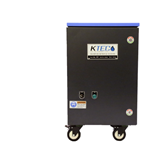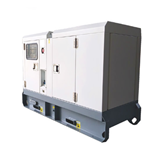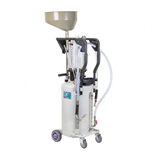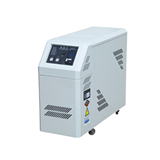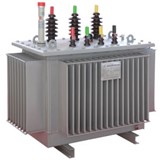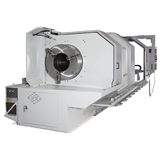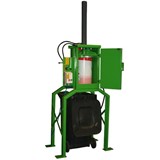In recent years Australia's economy has often been labelled as "two-speed", with mining in overdrive while industrial, commercial and retail sectors remain stuck in low gear.
However the latest findings from research house IBISWorld suggest 2010-11 will see some other markets emerge as front runners in the industrial landscape, even if in dollar terms mining continues to lead the charge.
Developing economies' demand for Australian commodities shows little sign of letting up, according to IBISWord, and despite the high Australian dollar, the coming 12 months will be no different.
Mining
Robert Bryant, IBISWorld General Manager, said the combined effects of surging demand and rising commodity prices would see mining revenues grow 12.9 per cent on the previous 12 months, with revenue reaching a staggering $207.7 billion.
"With close to 70% of the commodities mined exported to foreign markets, the growth of Australia's mining sector is closely linked to international demand," Bryant said.
Oil and Gas
Outside of mining, but still in the allied resources sector, oil and gas production is shaping as the top performing industry sector in 2011-12, with production forecast to grow a whopping 18.3% in the coming 12 months to revenues in excess of $40 billion. And this despite a slide in oil production, Bryant noted.
"Despite the fact that Australia's oil production is falling, gas output has continued to grow strongly, and significant industry growth is expected off the back of higher gas output," Bryant said.
"(This will come) through the discovery of new fields and expanded production at existing fields – and higher prices, which will stimulate revenue."
Sugar Manufacturing
The sugar manufacturing sector is another area with sweet prospects for the year ahead, with production forecast to grow 16.3%, with revenues in excess of $2.5 billion.
While food processing will be responsible for some of this growth, in large part it is ethanol demand that will drive the industry forward into 2012.
"Sugar cane can…be used to produce ethanol, and it is this increasing diversion of sugar into ethanol production that is playing a key role in the industry's growth," Bryant said.
"Rising global sugar prices and streamlined production will also play a part in boosting industry revenue."
Organic Farming
Farming prospects have seen mixed fortunes in the last 12 months, with floods and live animal export concerns conspiring to make conditions as difficult as ever for Australian farmers.
One area however where IBISWorld does expect to see an uptick in farming performance is in the field of organic farming, as demand for organic products in Australia is expected to continue to rise, as consumers increasingly factor in the health benefits and environmental impact of their food choices.
Strong growth has been supported by the mainstream acceptance of organic food, with major retailers – such as Coles and Woolworths – extending and promoting their own range of organic produce and products, making them more price competitive and easier for consumers to access.
In particular, Bryant highlighted baby foods as a strong growth area for the organic farming industry.
"The organic labelling system that was rolled out in 2009 is further supporting industry growth – which is forecast to expand by 13% to reach $504 million in 2011-12," Bryant said.
"This system has made organic products easier for consumers to identify, and ensures products meet required definitions and standards.
"And although organic produce currently represents just 1% of farm gate sales, it is growing at a rapid rate off the back of increasing demand."
Construction
For those in construction industries, prospects very much depend on what area of construction they are operating in, with multi-unit apartment and townhouse construction forging ahead, while institutional building construction is on the wane.
According to IBISWorld, the trend towards higher-density housing is expected to see apartment and townhouse construction grow by 10.6% over 2011-12 to reach $11 billion, while conversely revenue for the institutional building construction is forecast to contract by 7.3% to $10.2 billion.
Institutional building construction meanwhile has fallen in recent years as government expenditure has been scaled back. This downward trend is expected to continue in 2011-12, with IBISWorld forecasting the industry to contract by 7.3% to $10.2 billion.
"The majority of funding for institutional building construction comes from the public sector, with the work being undertaken by private contractors," Bryant said.
"The reining back in of government funds following heavy expenditure on programs such as the Building Revolution
tactics used to prop up the economy during the GFC has therefore resulted in a fall for this industry."
Renewable Energy
As the need for an environmentally friendly energy solution mounts, increased investment in clean energy technology and regulatory changes surrounding carbon emissions is expected to boost the renewable energy sector, which is forecast to grow by 9.7% in 2011-12 to reach $1.4 billion.
"While renewable energy is less economical than coal-fuelled electricity generation, the commitment towards a decarbonised future – and the Australian Government's aim of generating 20% of the country's electricity needs from renewable sources by 2020 – will stimulate growth for the renewable energy industry in the coming years," Bryant said.
Where there are winners, there will also be losers in the year ahead, with IBISWorld in particular singling out gaming and vending machine manufacturing as one of the likely worst performing industries in 2011-12.
Gaming and Vending Machine Manufacturing
Forecast for a revenue fall of 12.6% over the coming year (down to $439 million), the gaming and vending machine manufacturing sector will be hit hard by twin sledgehammers of a strong Australian dollar and government restrictions, IBISWorld predicted.
"The strong Australian dollar will see increased competition from imports in the vending machine sector – more so than with gaming machines – in the coming years, with imported products expected to account for 64.6% of domestic demand by June 2016," Bryant said.
Regarding gaming machines, Bryant said restrictions on the number of gaming machines allowed in one area – such as within a state, suburb or local council – are expected to become increasingly stringent over the coming five years, as governments across Australia seek to combat problem gambling.
Wired Telecommunications
Appearing on IBISWorld's worst-performers list for the second year in a row, the downward spiral for wired telecommunications carriers is expected to continue at a rate of -7.6% in 2011-12, down to $10.2 billion in revenue.
The substitution of mobile lines in lieu of wired access lines, coupled with the pricing war between fixed-line and mobile carriers are identified by IBISWorld as key factors driving the downturn.
"While wired telecommunications carriers were once able to compete with mobile carriers on price, the introduction of 'naked DSL' and VoIP products, as well as the expansion of mobile phone 'cap' plans offering almost unlimited phone calls and texts, have created an environment where wired telcos are struggling to compete," Bryant said.
"As a result of the pricing war, not only has revenue been reduced, but profitability has also been eroded, seeing wired telcos heavily reduce both employment and wages – which are forecast to fall at 7.4% and 7.3% respectively in 2011-12."
More information on these reports can be found on www.ibisworld.com.au



